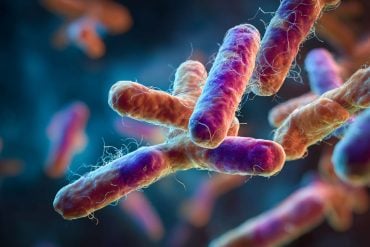Summary: Researchers analyzed over 1 million genomes, revealing insights into cannabis use disorder and its ties to psychiatric issues, other substance abuses, and lung cancer risks.
The study, part of the Million Veteran Program, identified genetic variants linked to cannabis use disorder and its associated health and behavioral problems. This largest-ever genome-wide study on cannabis disorder informs public health risks amid increasing marijuana use.
The findings highlight the importance of understanding the genetic basis of cannabis-related disorders to inform public health policies.
Key Facts:
- Researchers identified numerous genetic variants associated with cannabis use disorder, connecting it to other health and behavioral issues.
- The study suggests a potential link between cannabis use disorder and an elevated risk of lung cancer, though further research is needed.
- This comprehensive analysis is part of the U.S. Department of Veterans Affairs’ Million Veteran Program, making it the largest study of its kind.
Source: Yale
A Yale-led analysis of the genomes of more than 1 million people has shed light on the underlying biology of cannabis use disorder and its links to psychiatric disorders, abuse of other substances such as tobacco, and possibly even an elevated risk of developing lung cancer.
For the study, researchers examined a genome-wide set of genetic variants in individuals from multiple ancestry groups enrolled in the U.S. Department of Veterans Affairs’ Million Veteran Program, one of the world’s largest genetic databases, and incorporated additional information from several other genomic databases.
They were able to identify dozens of genetic variants linked to cannabis use disorder and a variety of behavioral and health issues associated with cannabis use disorder.
The study, led by Daniel Levey, assistant professor of psychiatry, and Joel Gelernter, the Foundations Fund Professor of Psychiatry and professor of genetics and of neuroscience, was published Nov. 20 in the journal Nature Genetics.
“Once we understand the biology of cannabis use disorder, we can better understand associated disorders and inform the public of risks associated with marijuana use,” said Levey, lead author of the study.
Marijuana is the most commonly used federally illegal drug in the United States, with more than 48 million people (18% of Americans) using it at least once in 2019, according to the U.S. Centers for Disease Control and Prevention. Previous research has shown that roughly one-third of people who use marijuana develop cannabis use disorder, which is defined as a problematic pattern of cannabis use leading to clinically significant impairment or distress.
The new findings offer insights into the genetic factors that underlie this phenomenon, and other potentially related health risks.
For instance, they found that variants of genes that encode for three different types of receptors on neurons were associated with elevated risk for developing cannabis use disorder.
And they found that these variants linked to cannabis use disorder were also associated with the development of lung cancer. The authors added, however, that more work needs to be done to separate the effects tobacco use and other environmental factors have on cancer diagnoses from those of marijuana use.
“This is the largest genome-wide study of cannabis use disorder ever conducted and as more states legalize or decriminalize the use of marijuana, such studies can help us to understand the public health risks that accompany its increased use,” Gelernter said.
About this genetics and addiction research news
Author: Bess Connolly
Source: Yale
Contact: Bess Connolly – Yale
Image: The image is credited to Neuroscience News
Original Research: Open access.
“Multi-ancestry genome-wide association study of cannabis use disorder yields insight into disease biology and public health implications” by Daniel Levey et al. Nature Genetics
Abstract
Multi-ancestry genome-wide association study of cannabis use disorder yields insight into disease biology and public health implications
As recreational use of cannabis is being decriminalized in many places and medical use widely sanctioned, there are growing concerns about increases in cannabis use disorder (CanUD), which is associated with numerous medical comorbidities.
Here we performed a genome-wide association study of CanUD in the Million Veteran Program (MVP), followed by meta-analysis in 1,054,365 individuals (ncases = 64,314) from four broad ancestries designated by the reference panel used for assignment (European n = 886,025, African n = 123,208, admixed American n = 38,289 and East Asian n = 6,843). Population-specific methods were applied to calculate single nucleotide polymorphism-based heritability within each ancestry.
Statistically significant single nucleotide polymorphism-based heritability for CanUD was observed in all but the smallest population (East Asian). We discovered genome-wide significant loci unique to each ancestry: 22 in European, 2 each in African and East Asian, and 1 in admixed American ancestries.
A genetically informed causal relationship analysis indicated a possible effect of genetic liability for CanUD on lung cancer risk, suggesting potential unanticipated future medical and psychiatric public health consequences that require further study to disentangle from other known risk factors such as cigarette smoking.








